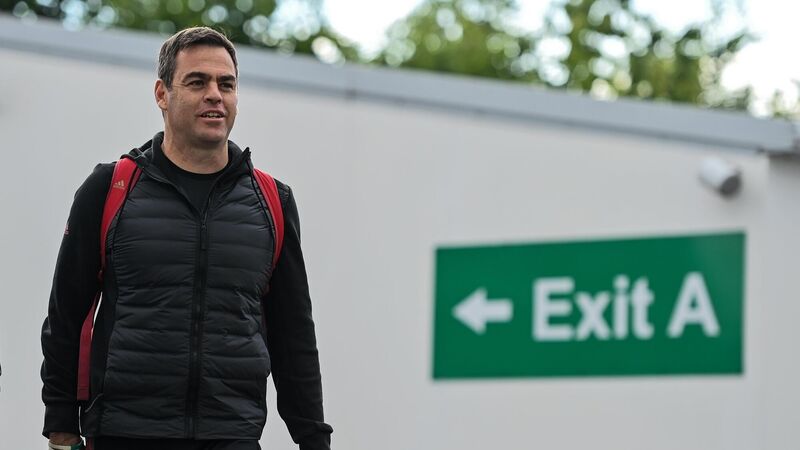Ian Mallon: How Munster managed van Graan's mid-season bombshell

That way is out: Munster head coach Johann van Graan before the United Rugby Championship Quarter-Final match between Ulster and Munster at Kingspan Stadium in Belfast. Pic: Ramsey Cardy/Sportsfile
FOR any front office at a major sports organisation – even one with a history of winning - success can also be measured without trophies.
It’s not something that the supporters or some commercial stakeholders often appreciate, but the bottom line will and must always rule.









